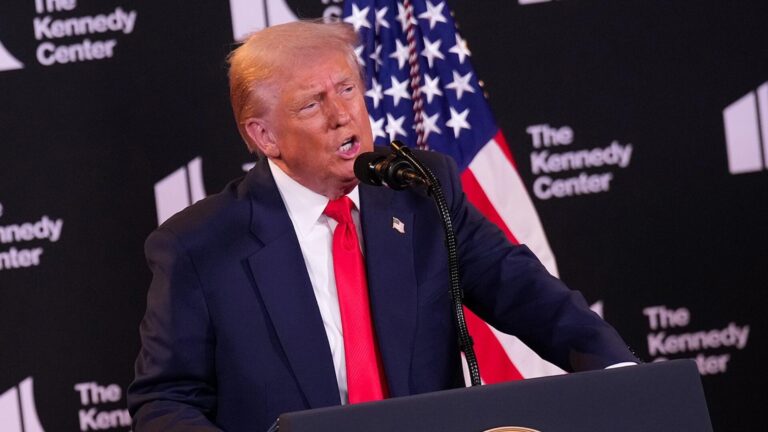In a stark critique of recent U.S. trade policies, prominent economist Jeffrey Sachs has labeled the Trump administration’s tariffs on India as the “stupidest tactical move,” highlighting the potential economic and diplomatic repercussions. Speaking to NDTV, Sachs underscored how these tariffs could undermine longstanding bilateral relations and harm both nations’ economic interests. His candid assessment adds a significant voice to the growing debate over the effectiveness and consequences of protectionist measures implemented during the Trump era.
Stark Criticism from Jeffrey Sachs on Trump Administration’s Tariff Policies Targeting India
Jeffrey Sachs, a leading US economist and policy advisor, has publicly condemned the Trump administration’s decision to impose tariffs on Indian imports, calling it the “stupidest tactical move.” Sachs argued that the tariffs not only undermine key economic partnerships but also risk destabilizing the broader US-India strategic alliance. He emphasized that the approach lacks nuanced understanding and could backfire by pushing India closer to other global powers, thereby harming US geopolitical interests.
The economist highlighted several critical concerns regarding the tariff actions:
- Disruption of global supply chains, impacting American consumers and businesses.
- Potential retaliation from India, escalating trade tensions.
- Loss of leverage in negotiations on critical issues like intellectual property and market access.
| Impact | Description |
|---|---|
| Economic Slowdown | Higher costs for US manufacturers relying on Indian components |
| Diplomatic Strain | Weakening of the US-India partnership on global security |
| Market Volatility | Uncertainty leading to stock fluctuations in relevant sectors |
Economic Consequences of Tariffs on US-India Trade Relations Explored
Jeffrey Sachs, a renowned economist and global policy advisor, has openly criticized the tariffs imposed by the Trump administration on Indian imports, describing them as a “counterproductive” strategy that undermines long-term economic cooperation between the two nations. Analysts warn that these tariffs not only risk disrupting supply chains but also threaten to inflate costs for American consumers and businesses relying on Indian goods, particularly in the pharmaceutical and technology sectors. With India being one of the world’s fastest-growing economies, Sachs emphasizes that such protectionist measures could deter vital foreign investments and stall innovation exchange.
The economic fallout extends beyond immediate trade imbalances, affecting sectors that are crucial for bilateral development. Traders on both sides reported increased operational hurdles, while experts predict a potential drop in bilateral trade volume by up to 12% over the next year. Below is a snapshot of sector-wise impact projections:
| Sector | Impact on US Imports | Projected Revenue Loss (%) |
|---|---|---|
| Pharmaceuticals | Increased costs, supply delays | 8% |
| Information Technology | Reduced service contracts | 10% |
| Textiles & Apparel | Higher prices, decreased demand | 15% |
| Agriculture | Export restrictions, tariff hikes | 6% |
- Trade tensions increase uncertainty in multi-billion dollar sectors.
- Investor confidence is shaken by the unpredictability of protectionist policies.
- Potential for renegotiation remains, provided diplomatic channels prioritize economic pragmatism.
Experts Call for Strategic Reassessment and Collaborative Trade Approaches
Leading economists and trade experts have voiced strong criticism of the recent tariff measures imposed by the US on India, warning that such unilateral moves could spiral into a broader economic impasse. These tariffs, described by Jeffrey Sachs as the “stupidest tactical move,” risk undermining years of diplomatic efforts aimed at strengthening bilateral trade relations. Instead of fostering cooperation, the current approach appears to bolster protectionism, threatening to hamper growth prospects not only for the involved nations but for the global economy at large.
Industry leaders and policy strategists advocate for an inclusive framework characterized by:
- Multilateral dialogues that address mutual concerns without escalation
- Transparent trade practices to enhance trust and market stability
- Joint innovation initiatives aimed at creating shared economic benefits
A comparative overview highlights the contrasting outcomes of aggressive tariff tactics versus cooperative trade agreements:
| Approach | Short-Term Impact | Long-Term Impact |
|---|---|---|
| Unilateral Tariffs | Temporary revenue boost | Risk of retaliation and reduced market access |
| Collaborative Trade | Slow negotiation process | Sustained economic growth and resilience |
In Summary
As the debate over trade policies continues to shape global economic relations, prominent voices like Jeffrey Sachs bring critical scrutiny to the Trump administration’s tariffs on India. Labeling them as the “stupidest tactical move,” Sachs’ comments underscore the potential risks and unintended consequences of protectionist measures in an interconnected world economy. As policymakers weigh the costs and benefits, the international community watches closely, anticipating how these decisions will influence future trade dynamics between two of the world’s largest democracies.




